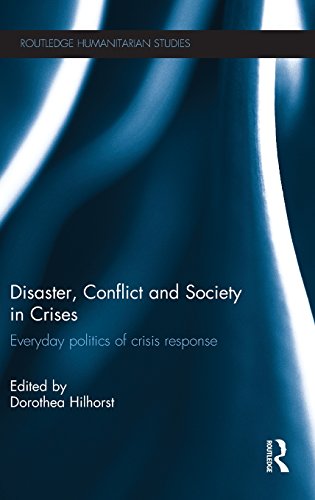

Most ebook files are in PDF format, so you can easily read them using various software such as Foxit Reader or directly on the Google Chrome browser.
Some ebook files are released by publishers in other formats such as .awz, .mobi, .epub, .fb2, etc. You may need to install specific software to read these formats on mobile/PC, such as Calibre.
Please read the tutorial at this link: https://ebookbell.com/faq
We offer FREE conversion to the popular formats you request; however, this may take some time. Therefore, right after payment, please email us, and we will try to provide the service as quickly as possible.
For some exceptional file formats or broken links (if any), please refrain from opening any disputes. Instead, email us first, and we will try to assist within a maximum of 6 hours.
EbookBell Team

4.0
36 reviewsHumanitarian crises - resulting from conflict, natural disaster or political collapse – are usually perceived as a complete break from normality, spurring special emergency policies and interventions. In reality, there are many continuities and discontinuities between crisis and normality. What does this mean for our understanding of politics, aid, and local institutions during crises? This book examines this question from a sociological perspective. This book provides a qualitative inquiry into the social and political dynamics of local institutional response, international policy and aid interventions in crises caused by conflict or natural disaster.
Emphasising the importance of everyday practices, this book qualitatively unravels the social and political working of policies, aid programmes and local institutions. The first part of the book deals with the social life of politics in crisis. Some of the questions raised are: What is the meaning of human security in practice? How do governments and other actors use crises to securitize – and hence depoliticize - their strategies? The second part of the book deals with the question how local institutions fare under and transform in response to crises. Conflicts and disasters are breakpoints of social order, with a considerable degree of chaos and disruption, but they are also marked by processes of continuity and re-ordering, or the creation of new institutions and linkages. This part of the book focuses on institutions varying from inter-ethnic marriage patterns in Sri Lanka to situation of institutional multiplicity in Angola. The final part of the book concerns the social and political realities of different domains of interventions in crisis, including humanitarian aid, peace-building, disaster risk reduction and safety nets to address chronic food crises.
This book gives students and researchers in humanitarian studies, disaster studies, conflict and peace studies as well as humanitarian and military practitioners an invaluable wealth of case studies and unique political science analysis of the humanitarian studies field.